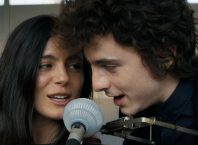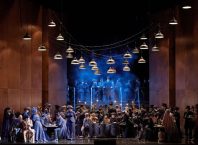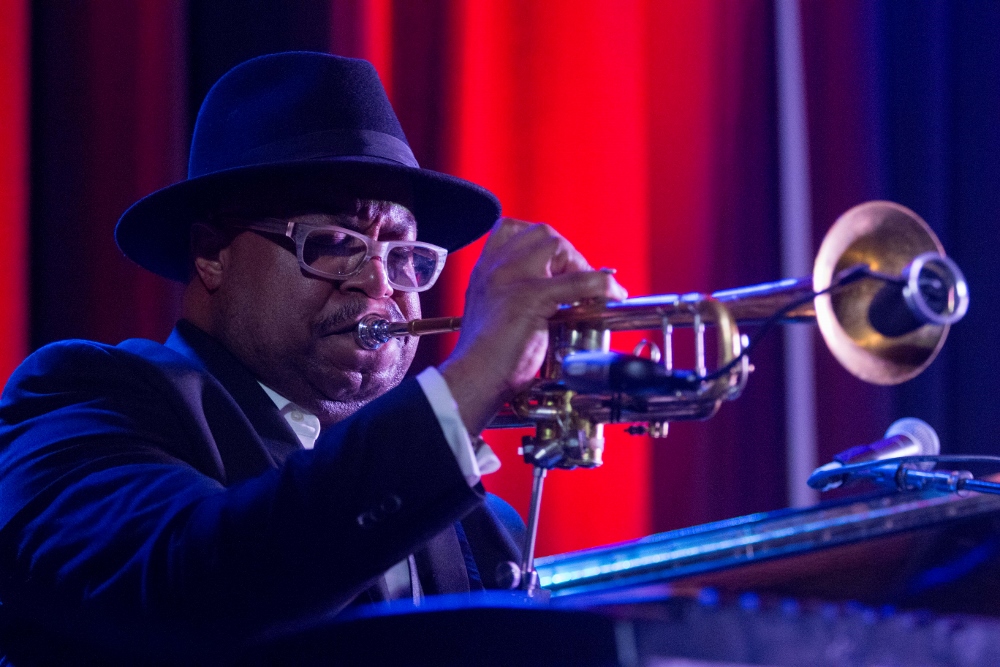
Hearing Nicholas Payton at the Tel Aviv Jazz Festival was an exhilarating experience, one that continues to resonate and fill my thoughts. Payton, with bassist Vicente Archer and drummer Joe Dyson, performed a set focused on his most recent album, Afro-Caribbean Mixtape, that revels in its many influences, moving freely between genres, merging spoken word with Caribbean rhythms, Hip Hop, R & B, and other forms of Black American music. Composer, trumpeter, pianist, keyboardist, and vocalist, Payton’s versatility, talents, and vision are dazzling, yet his onstage presence, seated between the grand piano and the keyboard, trumpet at the ready, is open and low-key, sending a clear message: he’s here not merely to dazzle, but to share.
Multilayered and complex, drawing on diverse influences, the music invites an immediate connection, communicating on several levels at once, rhythmic, aesthetic, sensual and philosophical. A celebration of the great ocean of people, spirit, and sound generating the waves that rise and converge, creating unique moments in time, the expression of the experiences, thoughts, and feelings of a people, and in its presence, we too are immersed in those waters.
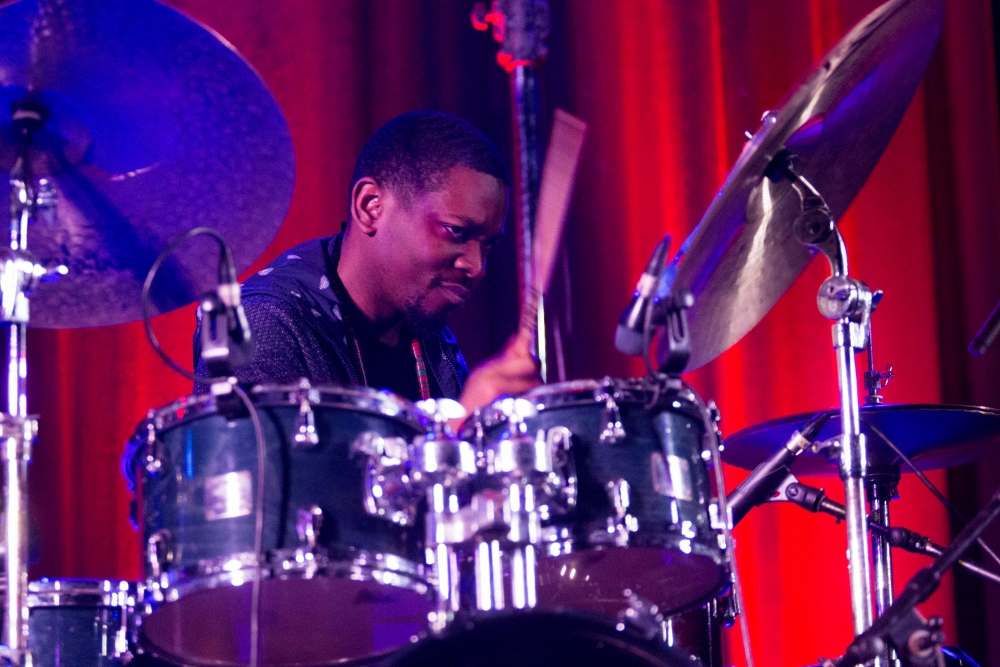
The concert opened with Afro-Caribbean Mixtape, the title track from the eponymous album, integrating the reflections of Dr. Greg Kimathi Carr, Professor of Afro-American Studies at Howard University with intoxicating rhythms, eclectic sonics, and a trumpet that sings sweet. The words function as both sound and text, with the phrase “ways of knowing” recurring in the palimpsest of sound. The words are also an intrusion in the chill flow of the music, impossible to ignore. And that’s the point. Carried on the rhythmic wave of the music, there is also the presence of Dr. Carr’s question “how come black people did not go crazy,” and its answer; the music takes you on a journey of the mind, body, and spirit. Dr. Carr’s is not the only voice heard on the album, which includes spoken texts by musicians such as Max Roach, Miles Davis, and Dizzie Gillespie, as well as intellectuals such as Dr. Johnnetta B. Cole, Dr. Charshee McIntyre and others.
Watching Payton perform is mesmerizing, the ease with which he holds the trumpet in one hand, while playing the keyboards with the other; or each hand speaking a different musical language, one on the keyboards and one on the grand piano. The trio onstage – Payton, Archer, and Dyson, were each deeply into his own thing, yet very connected, with the listening between them almost palpable. The music moves from something that makes you smile and sway, to dissonance and abstractions, taking melodies apart and putting them back together with traces of the journey. Jazz is a Four-Letter Word draws on the words of percussionist Max Roach, to create an anthem with a cool groove. Payton reached out to the audience, inviting us to join him in singing: Jazz is a Four-Letter Word, imprinting the intention of the words on mouth and breath. By Kamathi, I could no longer remain in my seat, and stood in the aisle, dancing to the music.
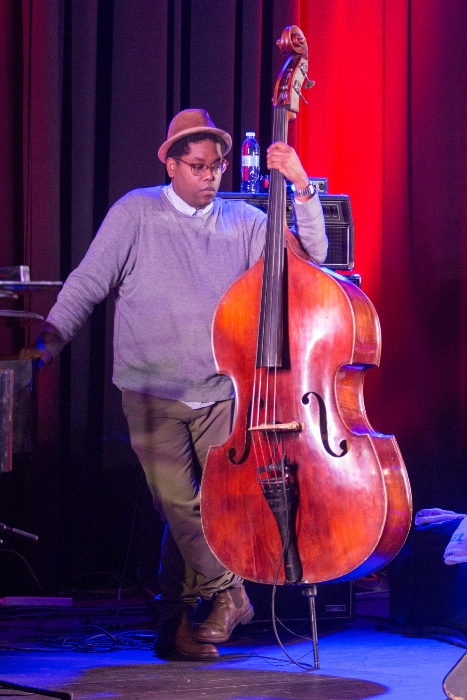
Yet each moment revealed a different aspect to the music and the possibilities. The groove of Kamathi then made way for Othello, an intimate, lyric song that lets the expressive qualities of Payton’s vocals shine and trumpet gleam in its heart-rending delicate beauty. Junie’s Boogie had me up on my feet again dancing… When the set was over, no one wanted the trio to leave, and Payton graciously gave a wonderful encore. It was a night to remember, yet I do not want to describe it as a once-in-a-lifetime experience, because I hope Nicholas Payton will return to perform here.




